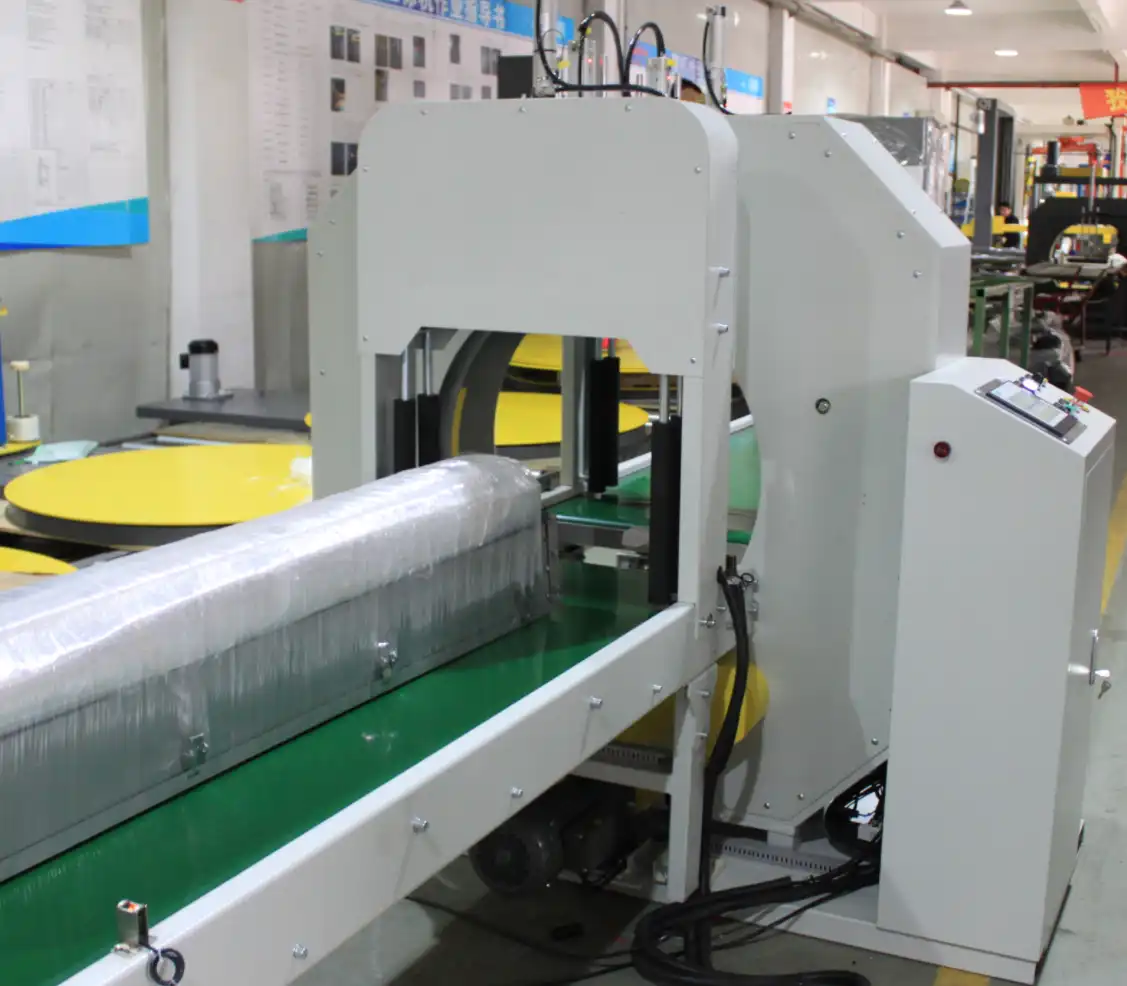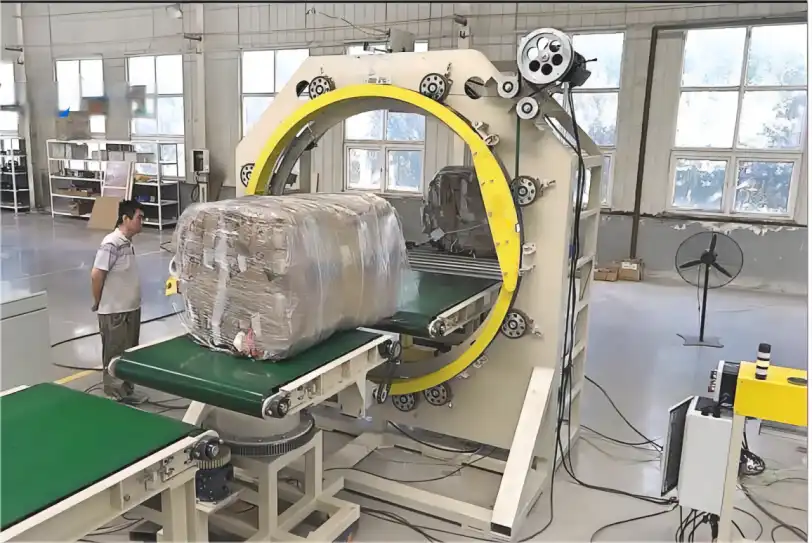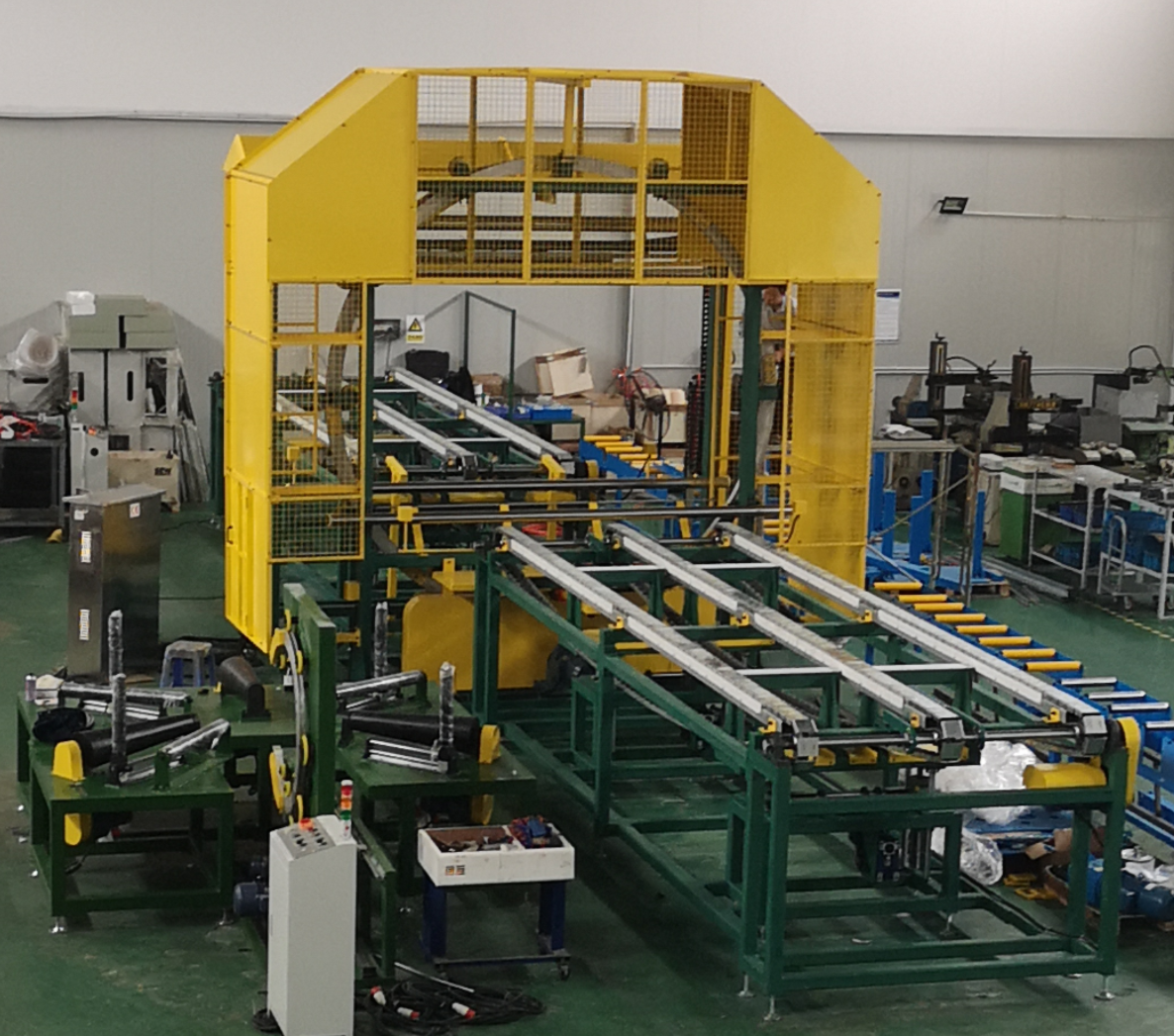Which Factors Influence Aluminum Ingot Strapping Solution Pricing?
Running a factory can be tough. You constantly face pressure to keep costs down while boosting output. One big challenge is understanding the true price of the equipment you need, especially for something as critical as strapping solutions. It is not just about the sticker price; it is about the full picture.
So, what really makes aluminum ingot strapping solutions cost more or less? The main factors include the level of automation, the quality of materials used, how much customization you need, and the ongoing support offered after you buy. Each of these plays a big role in the total investment.

It is easy to get lost in all the numbers. But understanding these core factors can help you make a smart choice. We will break down each one, showing you how to get the best value for your factory.
Does Automation Level Really Affect Cost?
Are you tired of slow, manual processes holding back your production? Many factory managers feel this frustration. Manual strapping is not just slow; it also adds safety risks and human error into your process. This slows down your whole operation, making it harder to meet delivery deadlines.
Yes, the level of automation significantly affects the price of an aluminum ingot strapping solution. More automation means a higher initial cost. However, it also brings major benefits in terms of speed, safety, and labor savings. This often leads to a better return on investment over time.

When we talk about automation in strapping solutions, we mean a spectrum. On one end, you have manual tools. These are simple. Workers use hand tools to apply straps. This is cheap to start. But it is very slow. It also puts workers at risk. They handle heavy items. They stand near moving parts. My own journey in the packing machine industry showed me this clearly. When I started as an employee, I saw firsthand how much time and effort manual processes consumed. There was always a bottleneck at the end of the line.
Then you have semi-automatic machines. These machines do some of the work. A worker still places the strap around the ingot. But the machine handles the tensioning and sealing. This speeds things up. It also improves safety a bit. Workers do less repetitive strain. But you still need a worker for each machine. This means ongoing labor costs.
Finally, there are fully automatic systems. These machines do everything. They feed the strap. They apply it around the ingot. They tension it. They seal it. They can even cut it automatically. Some advanced systems integrate with conveyor lines. They automatically strap ingots as they pass by. You need fewer workers for this. One worker might just monitor several machines. These systems are fast. They are also very safe. Workers do not need to be near the strapping area. The initial cost for a fully automatic system is the highest. But think about the long-term. You save on labor. You reduce injuries. You avoid product damage from human error. My experience building my own packing machine factory proved this. Investing in automation upfront saved us countless hours and reduced our operational risks. It also allowed us to scale production in a way that manual processes never could. This is why many factories look at ROI. The payback period for a fully automated system can be surprisingly short. It often outweighs the higher upfront price tag.
| Automation Level | Initial Cost | Speed (Ingots/Hour) | Labor Requirement | Safety Risk | ROI Potential |
|---|---|---|---|---|---|
| Manual | Low | Low | High | High | Low |
| Semi-Automatic | Medium | Medium | Medium | Medium | Medium |
| Fully Automatic | High | High | Low | Low | High |
Choosing the right level means balancing your budget today with your goals for tomorrow. If you aim to grow production and improve safety, automation is key.
How Does Equipment Durability Impact Long-Term Spending?
Does the thought of frequent machine breakdowns keep you up at night? For factory managers, nothing is worse than unexpected downtime. Every minute a machine is not running means lost production and lost money. This makes you wonder if cutting corners on equipment quality is ever a good idea.
Equipment durability has a huge impact on your long-term spending. A cheaper, less durable machine might save you money now. But it will cost you more later. You will face more repairs. You will have more downtime. Parts will wear out faster. A well-built machine lasts longer. It needs less maintenance. This reduces your total cost of ownership.

When you look at equipment durability, think about the materials. High-quality steel costs more. But it resists wear. It resists corrosion. It handles heavy use. Cheaper machines might use thinner steel. They might use lower-grade alloys. These break down faster. The components also matter. A good strapping machine uses robust motors. It uses reliable electronic controls. It has strong pneumatic or hydraulic systems. Companies that cut costs often use generic, low-quality components. These fail sooner. Replacing them costs time and money.
Consider the design and construction too. Is the machine built for continuous operation? Or is it for light use? Heavy-duty machines have stronger frames. They have reinforced stress points. They are designed for demanding factory environments. My experience building a successful packing machine factory taught me this lesson very early. We learned that investing in high-quality materials and robust designs upfront was not an expense; it was an investment in our future. It meant fewer calls from clients about breakdowns, and more time focusing on production.
A durable machine means less downtime. Downtime is expensive. You lose production. You might miss deadlines. You might even lose customers. Repairs also add up. You pay for parts. You pay for technicians. If you need special parts, they might take time to arrive. This extends your downtime. A durable machine needs less frequent maintenance. It also holds its value better. You might even be able to resell it later. So, while the initial price for a durable machine is higher, its total cost over its lifespan is usually lower. This is because you spend less on repairs, parts, and lost production. For a factory manager like Michael, who needs equipment that can withstand high-intensity, harsh work environments, focusing on durability is not just a preference; it is a necessity for financial health.
| Factor | Cheaper Machine | Durable Machine | Long-term Impact | |
|---|---|---|---|---|
| Material Quality | Lower grade | High grade | More repairs | Less repairs |
| Component Life | Shorter | Longer | More replacements | Fewer replacements |
| Downtime | Frequent | Rare | High losses | Low losses |
| Maintenance Cost | High | Low | Higher | Lower |
| Lifespan | Shorter | Longer | Need to replace sooner | Lasts for years |
This table makes it clear. Investing in durability pays off big in the long run.
Are After-Sales Service and Support Worth the Extra Money?
Have you ever bought equipment only to feel abandoned by the supplier once the sale was done? This is a common problem. Many suppliers focus only on making a sale. They offer poor or non-existent after-sales service. This leaves you stranded when problems arise.
After-sales service and support are definitely worth the extra money. They protect your investment. They ensure your machine keeps running. This reduces your operational risks. Good support includes installation, training, warranty, and easy access to spare parts. It provides peace of mind.

When you buy a complex machine, you need more than just the machine itself. You need help getting it set up. Proper installation is critical. If it is not installed right, it will not work right. It might even be unsafe. Then there is training. Your workers need to know how to use the machine safely. They need to know how to use it efficiently. A good supplier offers thorough training. This ensures your team can maximize the machine’s potential. It also reduces user error.
A strong warranty is another key part of after-sales support. It covers defects. It protects you from unexpected repair costs during the warranty period. But what happens after the warranty? You need access to spare parts. You need them quickly. If a part breaks, you cannot wait weeks for a replacement. This causes too much downtime. A reliable supplier keeps spare parts in stock. They can ship them fast. They also offer technical support. You might need help troubleshooting issues. You might need guidance on maintenance. This can be remote support or on-site visits.
My journey establishing my own packing machine factory taught me that a relationship with a supplier is not a one-time transaction. It is a partnership. We built our business on trust. We understood that if our clients failed because of machine issues, it would reflect poorly on us. That is why we invested heavily in our service team. We knew that providing excellent support built lasting relationships. Michael, like many factory managers, has faced supplier trust crises. They have dealt with companies focused only on sales. This makes them cautious. They want a partner who understands their challenges. They want someone who will stand by their product. They want someone who helps them solve problems. This ongoing support is not free. It is often a separate line item in the pricing. But it is an investment in your factory’s continuous operation. It is an investment in minimizing future headaches.
| Service Feature | Basic Supplier | Excellent Supplier | Benefit to You |
|---|---|---|---|
| Installation | Self-guided | On-site expert | Correct setup, avoid early issues |
| Training | Manual only | Hands-on training | Skilled operators, reduce errors |
| Warranty Coverage | Limited | Comprehensive | Peace of mind, cost protection |
| Spare Parts Access | Slow/Limited | Fast/Available | Minimize downtime, quick repairs |
| Technical Support | Email only | Phone/Remote/On-site | Quick problem resolution, expert advice |
Choosing a supplier with strong after-sales support is a crucial decision for your factory’s long-term success.
Can Customization Truly Optimize Your Investment?
Are your current factory layout and specific product dimensions causing headaches with standard equipment? Sometimes, an off-the-shelf solution just does not quite fit. This can lead to inefficient workflows. It can create safety hazards. It might even result in product damage. You need a solution that truly understands your unique operation.
Yes, customization can absolutely optimize your investment. While it adds to the initial cost, it ensures the strapping solution fits your specific needs perfectly. This can lead to increased efficiency, improved safety, and reduced product damage. It also makes sure your equipment works seamlessly with your existing production lines.

Customization means tailoring the machine. It adapts to your factory’s specific layout. You might have limited space. You might have unique conveyor heights. A standard machine might not fit. A customized machine can be designed to integrate smoothly. This avoids costly renovations to your facility. It also saves installation time. Then there are your products. Aluminum ingots come in different sizes. They have different weights. Standard strapping machines might handle a range of sizes. But a customized machine can be built for your exact product specifications. This ensures optimal strapping. It prevents damage during handling.
Think about your current production line. A custom solution can integrate directly. It can receive ingots from an upstream process. It can deliver them to a downstream process. This creates a seamless flow. It eliminates manual intervention points. This boosts overall efficiency. It also reduces bottlenecks at the end of the line. Safety features can also be customized. You might have specific safety concerns in your factory. A custom machine can include specialized guards. It can have emergency stop systems placed strategically. It can even integrate with your existing factory safety protocols.
My journey in the packing machine industry started with understanding customer problems. When I was setting up my own factory, I knew that every client’s setup was unique. This is why we focused on providing tailored solutions, not just selling boxes. We understood that a "one-size-fits-all" approach rarely optimized performance. Michael, the factory manager, is looking for a partner who understands his production bottlenecks and safety concerns. This means not just selling him a machine, but selling him a solution. A solution that accounts for his specific challenges. This level of customization might cost more upfront. But it prevents future problems. It ensures the machine works as effectively as possible. It delivers the best possible ROI for your unique operation. It transforms a simple purchase into a strategic investment.
| Customization Feature | Standard Machine Approach | Custom Solution Approach | Direct Benefit to You |
|---|---|---|---|
| Factory Layout Fit | Adapt factory to machine | Machine adapted to factory | Optimal space utilization, no layout changes |
| Product Dimensions | Fixed range | Precise fit for your products | Reduced product damage, perfect strap tension |
| Integration with Lines | Standalone | Seamless connection | Eliminate bottlenecks, continuous flow |
| Safety Features | Generic | Tailored | Enhanced worker safety, compliance |
| Throughput | Fixed | Optimized for your needs | Maximize production speed and output |
Customization is not just about features. It is about perfectly aligning the equipment with your operational needs.
My Insights!
When I first started in the packing machine industry, I was just an employee. I saw the machines, and I learned how they worked. But then, I began to see the bigger picture. I saw how these machines helped businesses. They solved real problems for factory owners. This understanding helped me later. It pushed me to establish my own packing machine factory. We focused on building relationships, not just selling machines.
My biggest insight is this: the best machine is not always the cheapest one. It is the one that solves your specific problems. It is the one that fits your long-term goals. For someone like Michael, who needs reliable equipment and wants a true partner, trust matters most. A supplier should understand your pain points. They should know about your safety risks. They should know about your efficiency bottlenecks. We built FHOPEPACK to share this knowledge. We want to help others succeed. Just as the industry helped me achieve financial independence, I want to give back. I want to help you make informed decisions. We want to be the partner you can trust. We want to help you grow your business.
Conclusion
Choosing the right strapping solution means looking beyond the initial price. Consider automation, durability, support, and customization to find a true long-term value for your factory.










